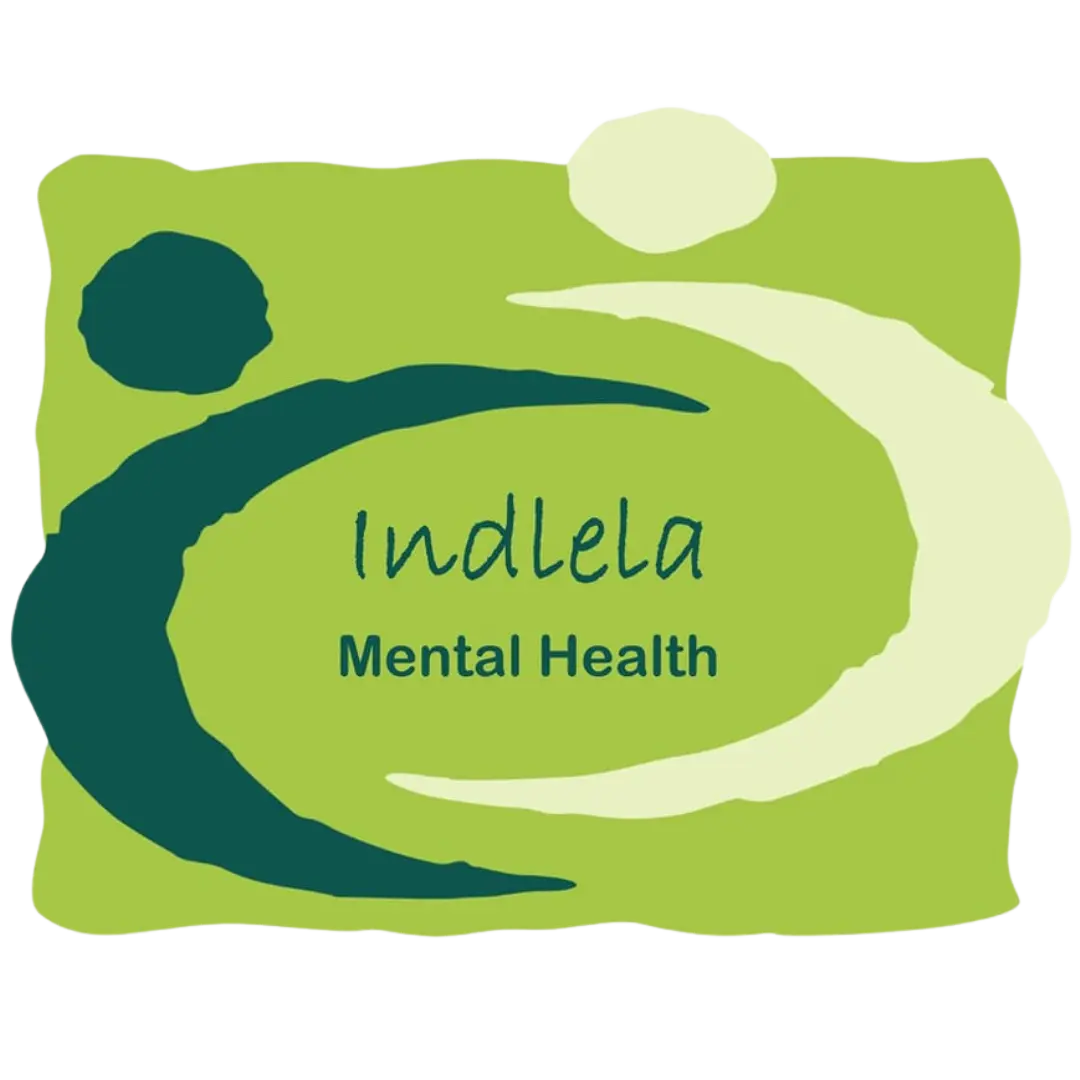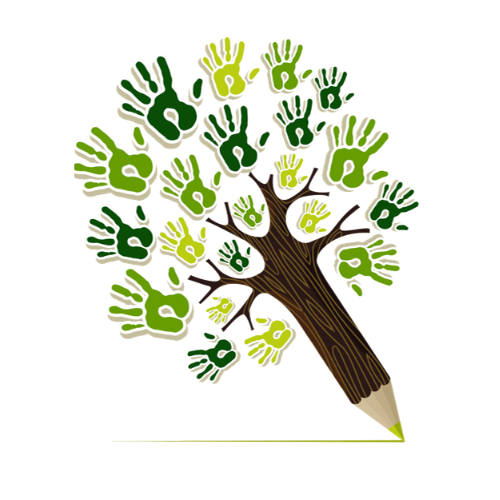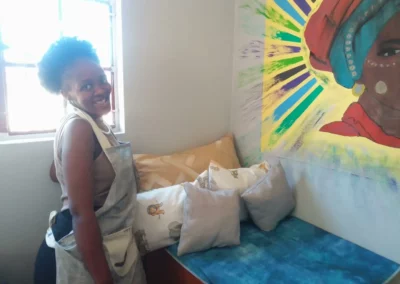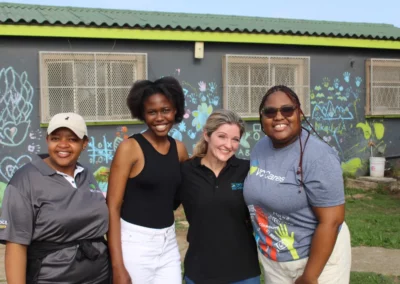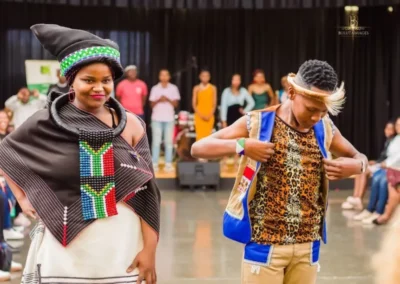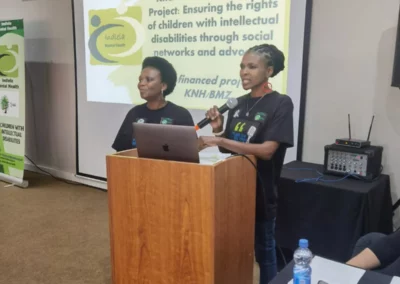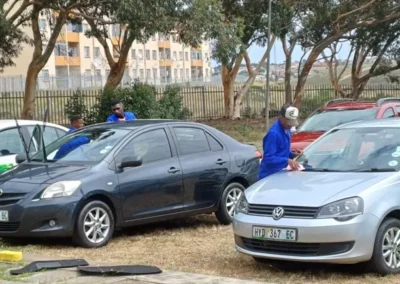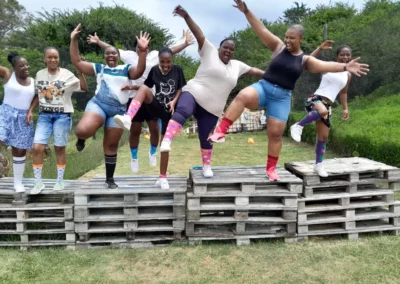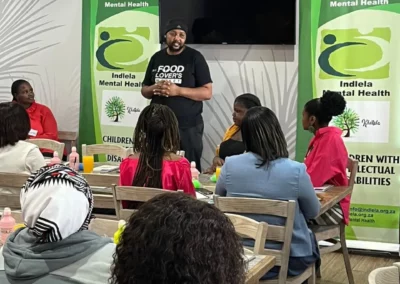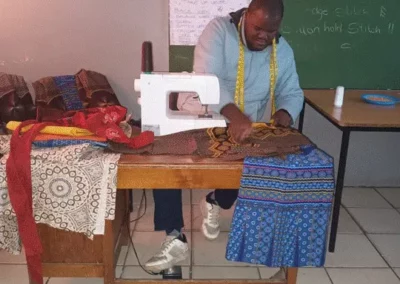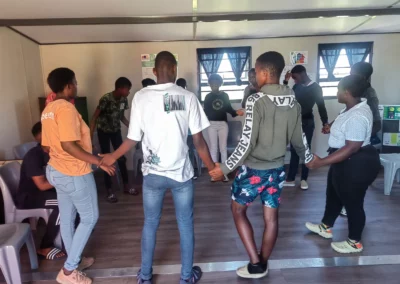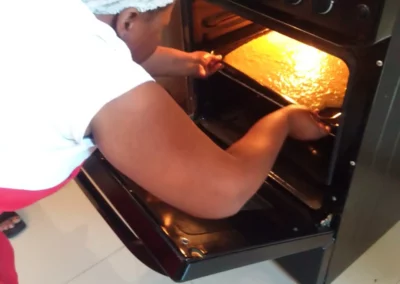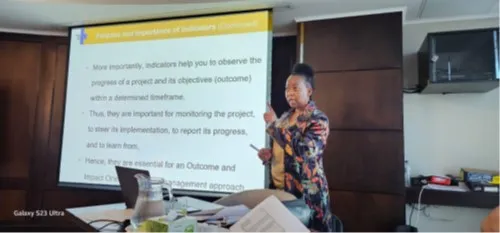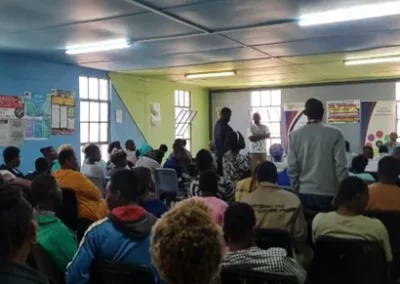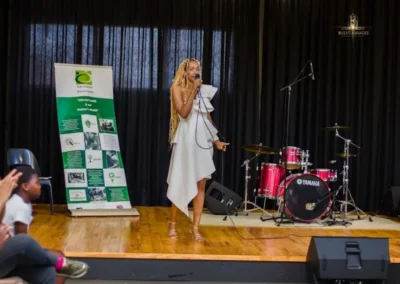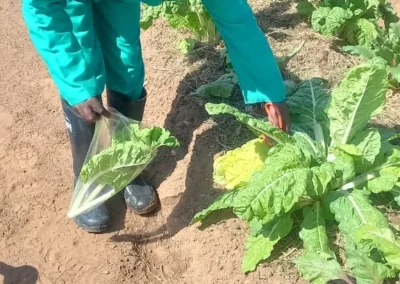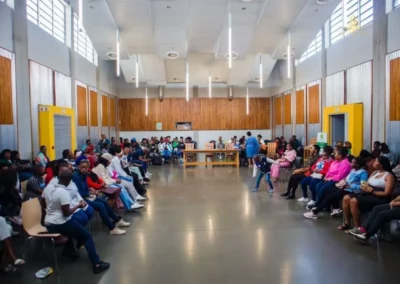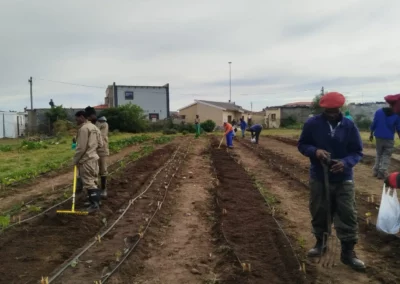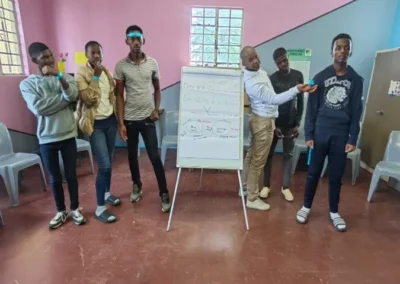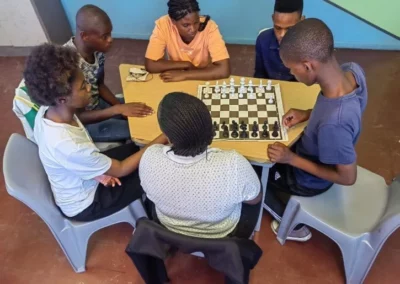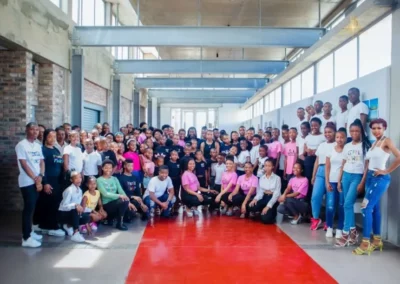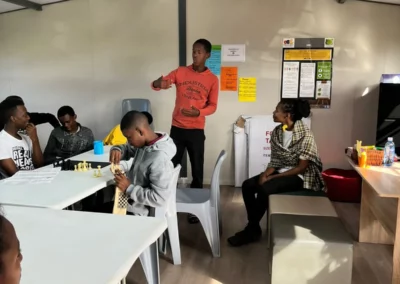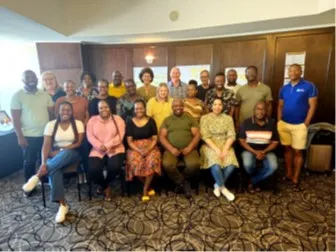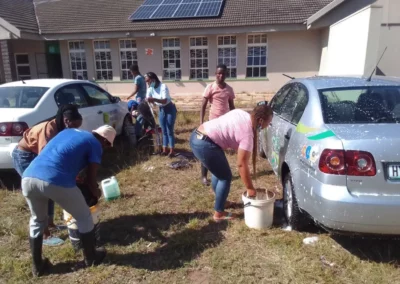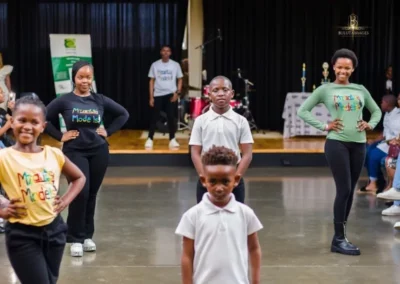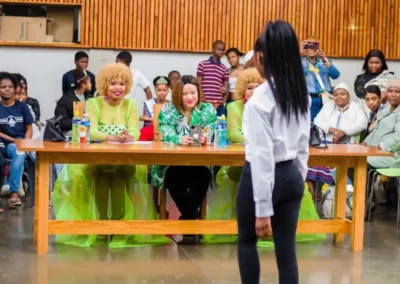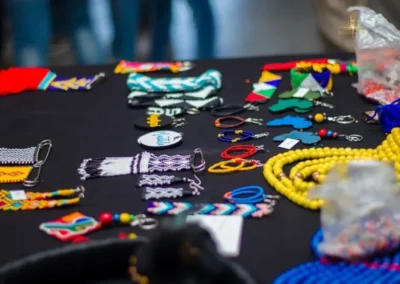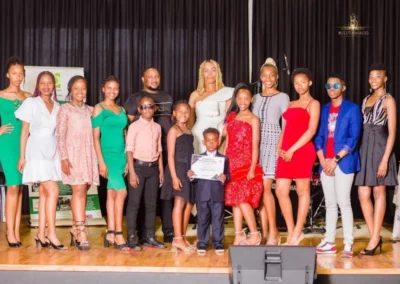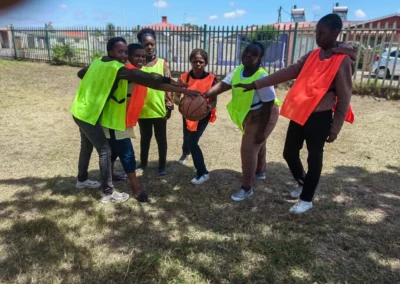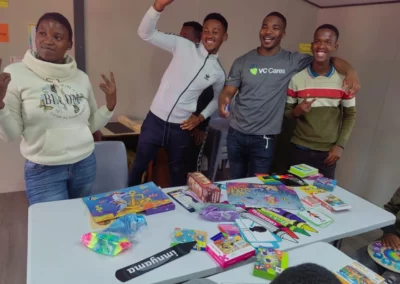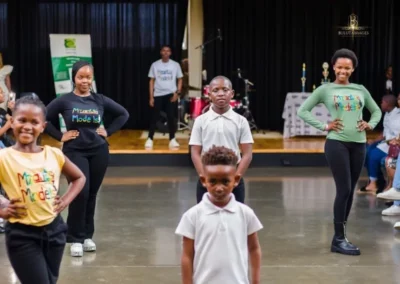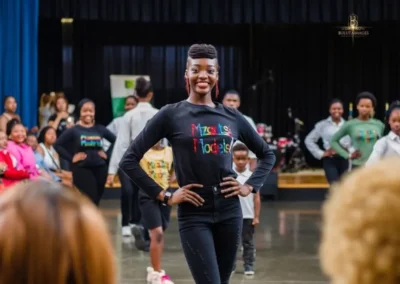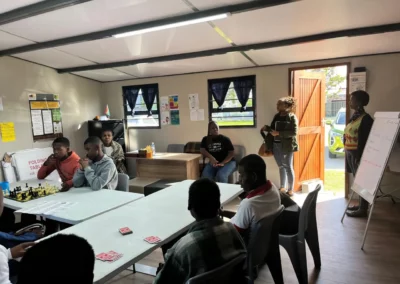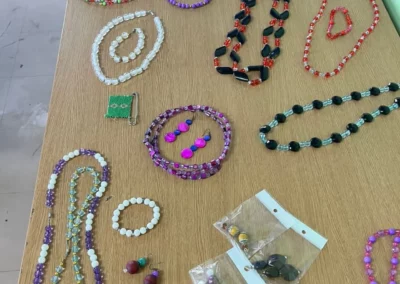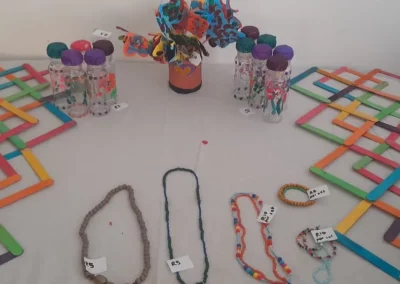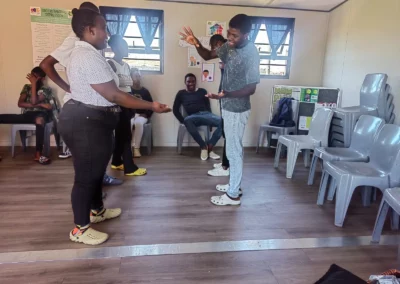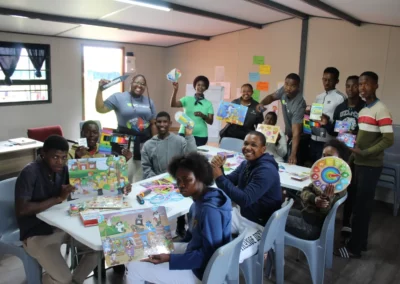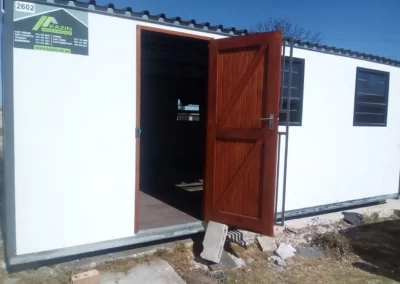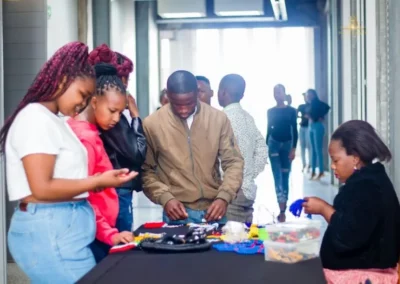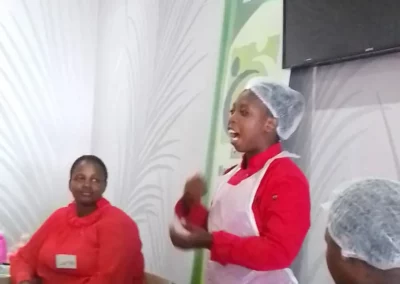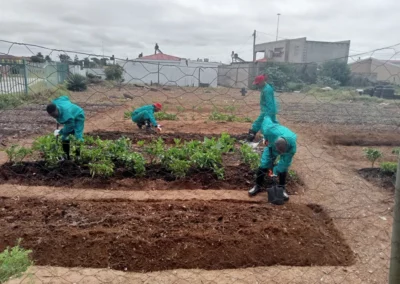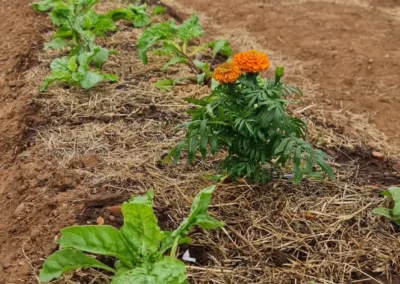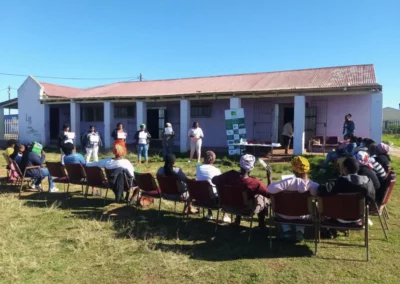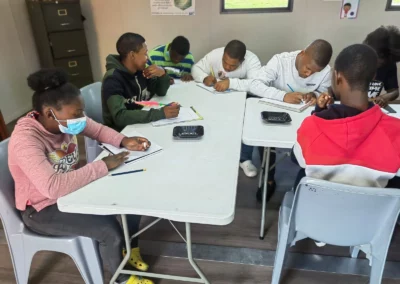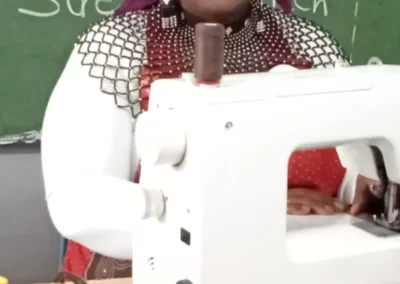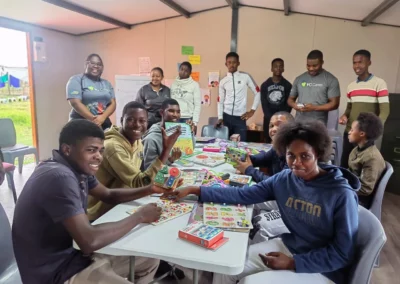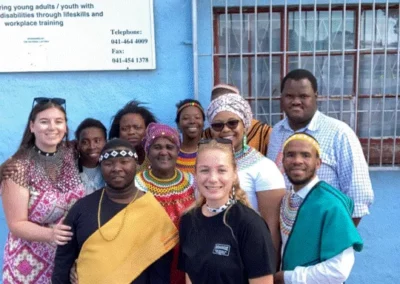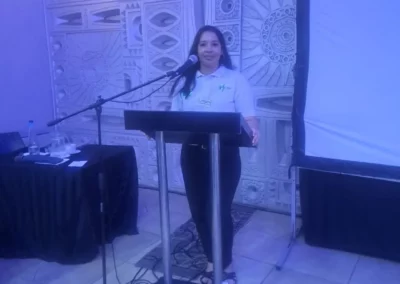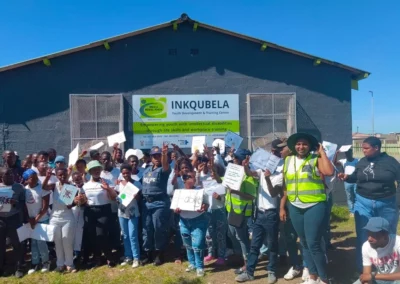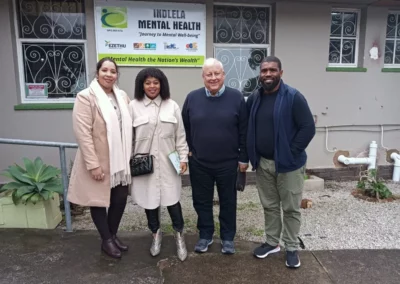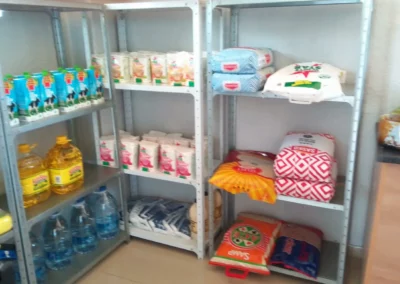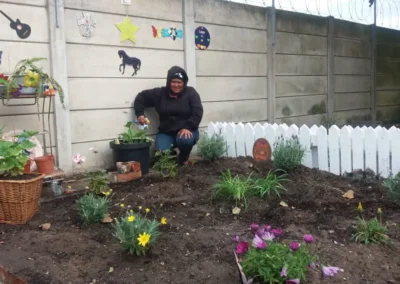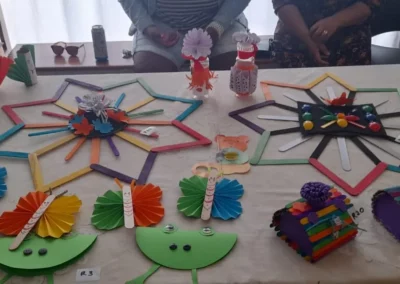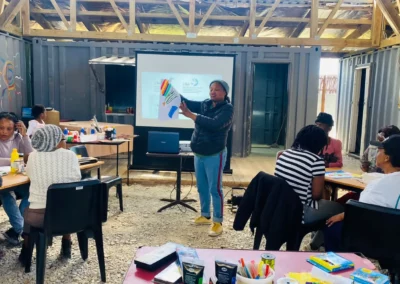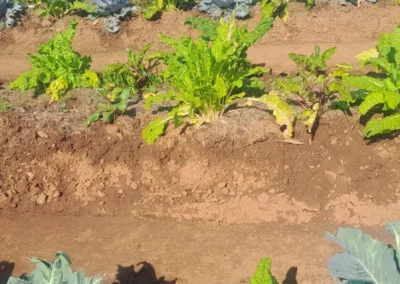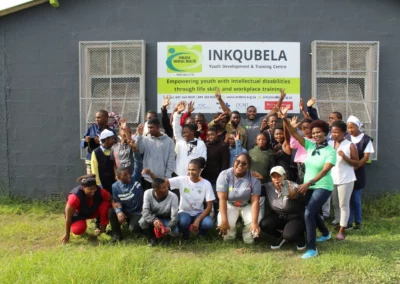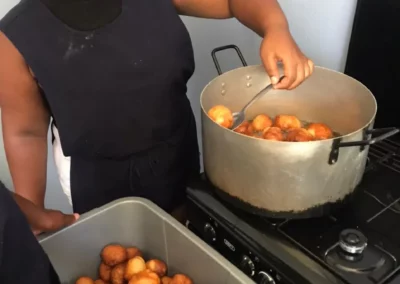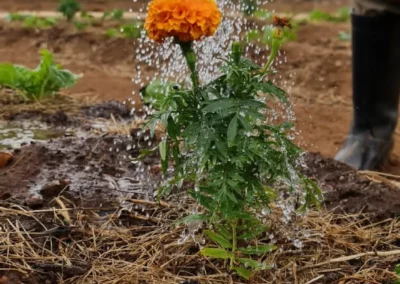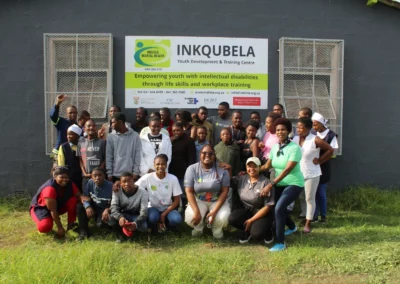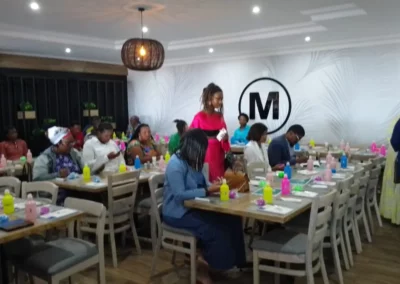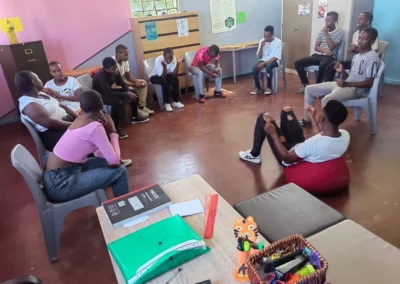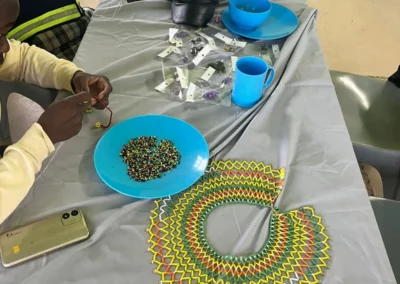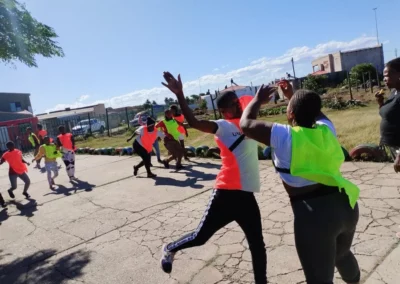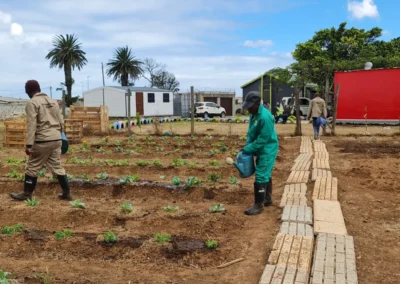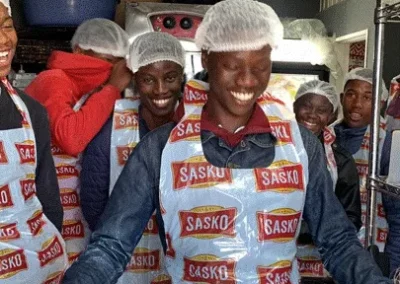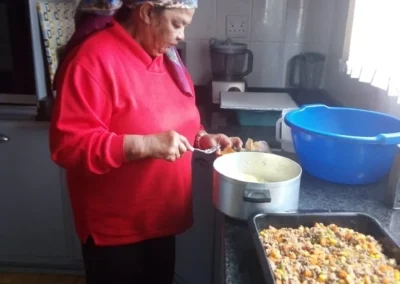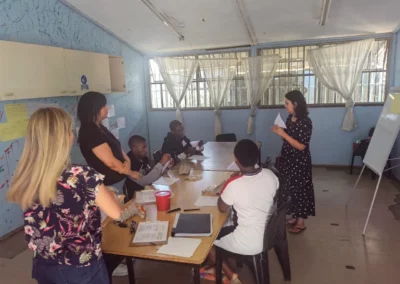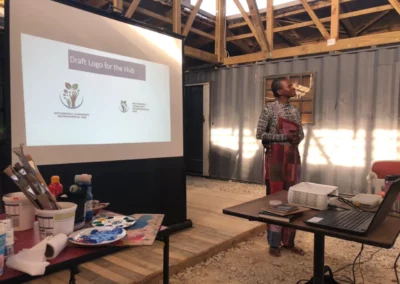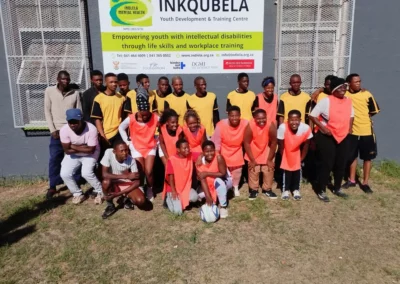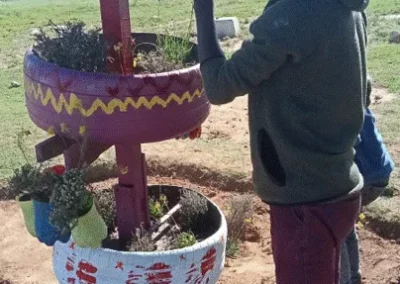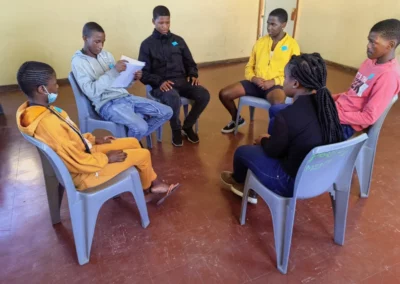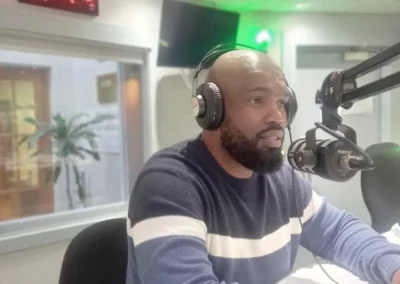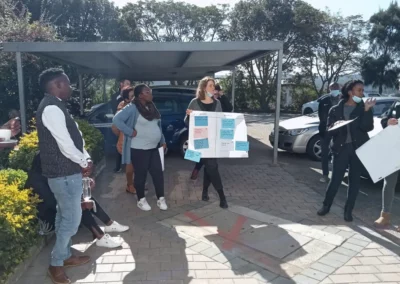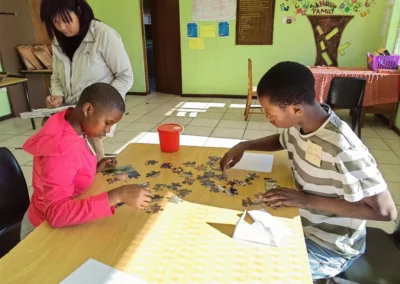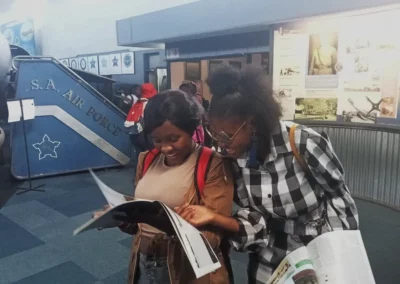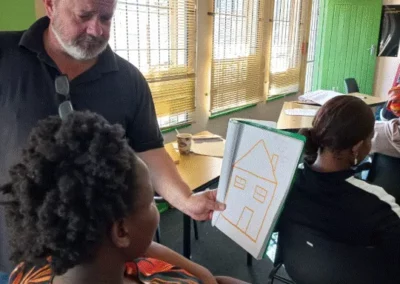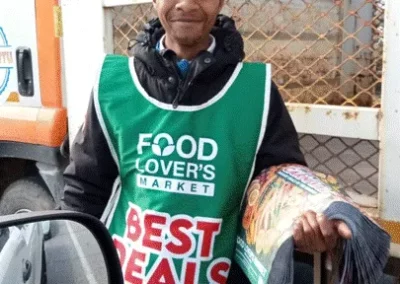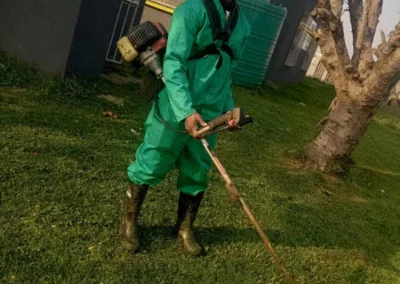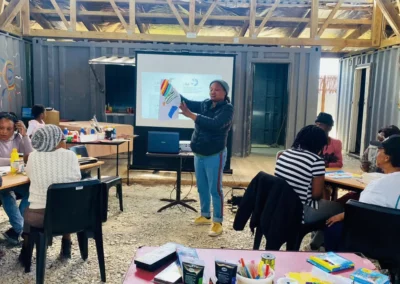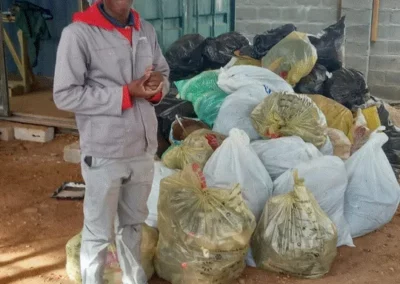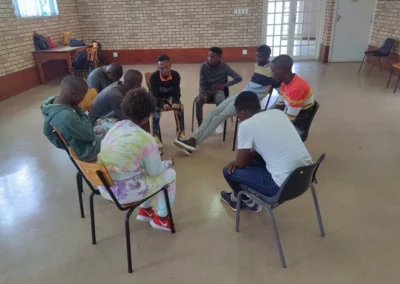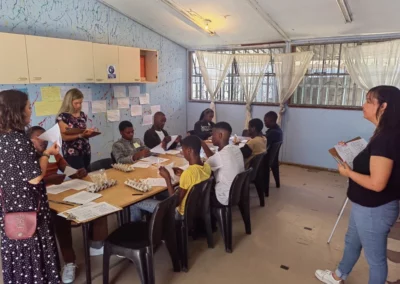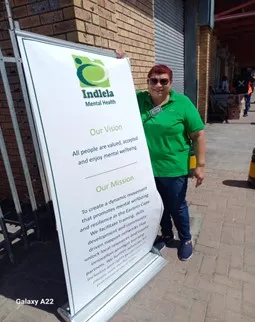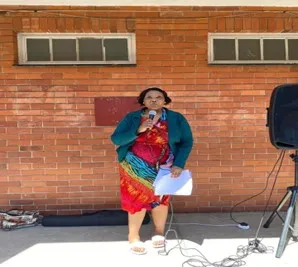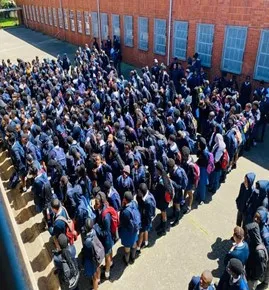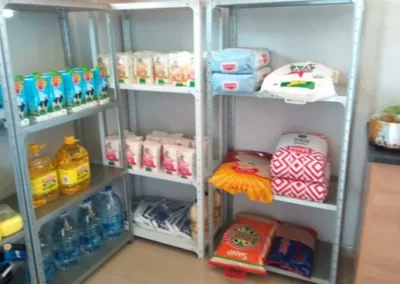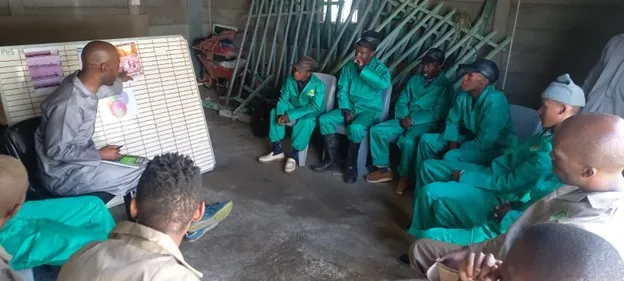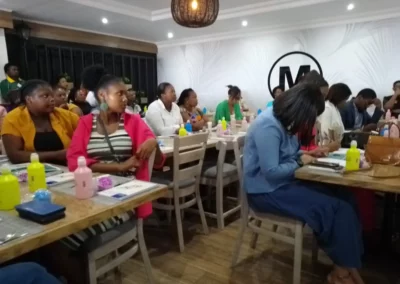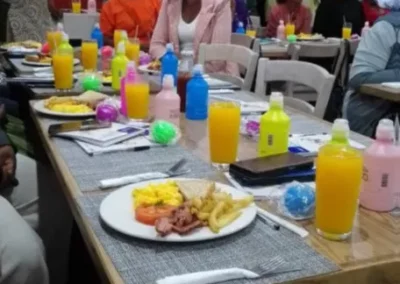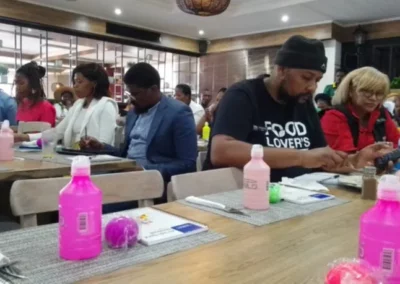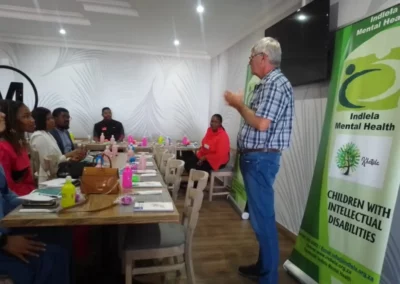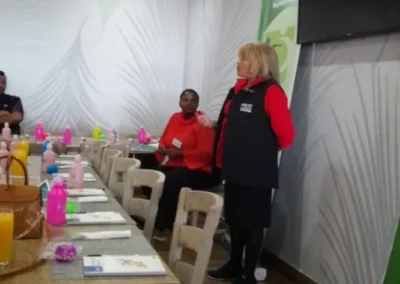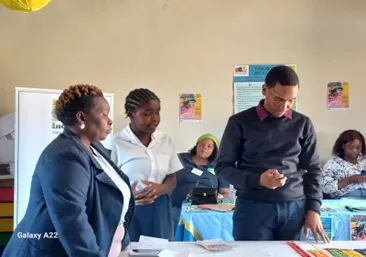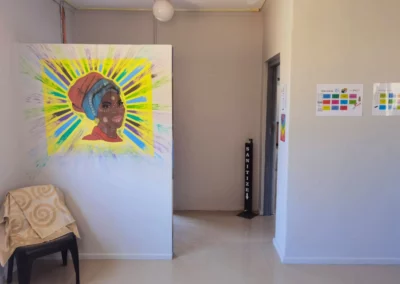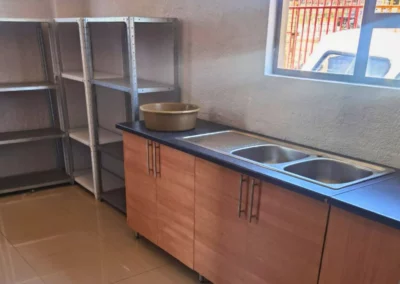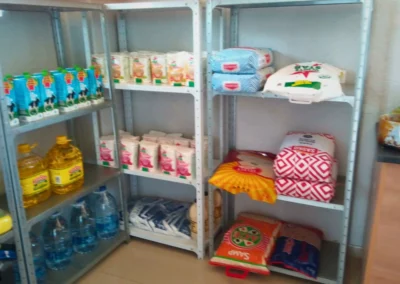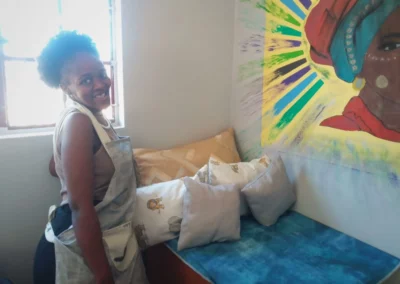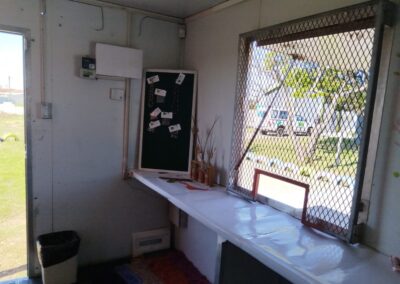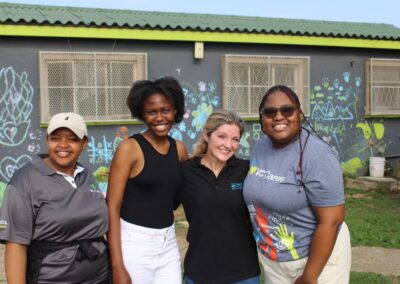LET’S WORK TOGETHER
MASAKHANE
Adolescent / Youth Skills Development & Supportive Employment
Our facilities provide skills training, with the aim of promoting the youth with intellectual disability into the employment sector – improving their livelihoods and reinforcing their full integration within their communities.
MASAKHANE HIGHLIGHTS
SIKHULILE – OVERCOMING ADVERSITY
The Motherwell site – also known as Sikhulile which means “we are grown up” – has been without a permanent location for most of 2023. Due to heightened crime, hijacking incidents, vacant posts, and vandalism of property, Sikhulile had to seek innovative solutions that would serve the best interests of the Learning Partners and staff. Despite these challenges, we commend the resilience of the staff and Learning Partners who ensured that services continued despite the myriad issues.
A highlight for Sikhulile was the partnership forged with the Motherwell Modelling Agency. The adolescents from Motherwell were mentored in the art of movement, dexterity, grace, and coordination. This training culminated in their participation in a mainstream modelling event at the Mendi Art Gallery on 15 October 2023 called “Battle of Fashion”. They were praised for their movement skill, ability to work with others, and their ability to cope with stress. They walked in front of an audience of over 250 people and performed admirably. This was truly life-changing for those participating. The modelling classes played a large role in building their self-esteem and provided opportunities for the Learning Partners to practice their skills in public speaking and advocating for the rights of people with disability.
2024 offered many new opportunities for Sikhulile – the most exciting was moving to the new site at Coselelani High School where they rebuilt and the synergy between the programmes offered by the school and Sikhulile, created space to be inspired, to thrive, and to grow.
A PROSPEROUS YEAR FOR CHUMANI
The word Chumani means “Prosperity”. 2023/2024 has indeed been a prosperous year for Chumani – who is sporting a “new look” after quite extensive renovations. The number of Learning Partners has grown and we found Chumani bursting at the seams. Creating an open plan layout and extending some of the workstations, such as the kitchen, has allowed the programmes the space they desperately needed to be safe and effective as simulation spaces. This makeover sees Learning Partners proud of their space and taking responsibility for keeping it clean. The practical skills training – including car wash, arts and crafts, cleaning and hygiene, shelf packing and sewing – can now be further enhanced through the engaging and positive learning environment. For making all of this possible we say a BIG thank you to TDH (Terres Des Hommes) – a donor whose partnership is sincerely valued.
INKQUBELA INSPIRES ENTREPRENEURS TO ASPIRE
The site in New Brighton is called Inkqubela which means “Progress”. Indlela Mental Health works from a strength-based perspective, appreciating the skills inherent in each Learning Partner and using this as a point of departure for all future progress. Looking to grow the number of youth benefitting from the Supportive Employment Programme – and recognizing a gap for those whose skills are more suited to entrepreneurship – we felt ready to embark on a new journey: Establishing a consignment shop in New Brighton where the youth who have graduated can sell their products or goods and generate an income. To determine if this would be supported by the community, two independent consultants undertook a feasibility study from November 2023 to February 2024. A survey conducted with 168 households, highlighted that the community would welcome the opportunity to purchase fresh vegetables and other items, as long as the quality was good and the prices competitive. With this green flag, the team got busy refurbishing a container donated by Coca-Cola and the youth are eager to flex their entrepreneurship muscles. A new beginning for Inkqubela and the youth with ID – who will be truly integrated into their communities as producers.
SAKHE CONSIGNMENT SHOP
SUBSISTENCE GARDENING PROGRAMME RECEIVES A BOOST
An exciting opportunity arose for those in the Subsistence Gardening programme who benefitted from professional training by reps from Rasmeni Farming. They received training and mentorship in:
- Establishing a kitchen garden
- Establishing a market garden
- Establishing a herb, medicinal,
- and flower garden
- Standard organic agricultural practices
- Water management
- Crop production
- Food forestry
There was great excitement with their first harvest from the training garden and we look forward to seeing the full vision come to fruition with learning partners growing on their own piece of ground and selling their produce at the consignment shop!
IMBEWU – IN A CLASS OF ITS OWN
Imbewu means “Seed”. This incubator programme caters for those adolescents who have mild to moderate intellectual disability, are between the ages of 15 and 18 years, and are not accommodated at mainstream schools.
The programmess are lifeskills-based with the focus on easing the Learning Partners successfully into the Masakhane Skills Training Programmes when they turn 18 years old. The Learning Partners are also encouraged to become confident self-advocates. They are exposed to the world of work and are inspired to set goals and aspire to a future filled with promise.
The Imbewu programme is run at all three sites based in New Brighton, Zwide, and Motherwell. Each site accommodates 25 Learning Partners. In March 2024, the learners at Imbewu New Brighton were very excited about the delivery of their new customized pre-fabricated classroom. Deciding how to brand and brighten it up has been a fun challenge for 2024.
We look forward to new “seeds” being planted so that the Learning Partners whom we serve can “grow up”, ‘“progress”, and “prosper”. May Masakhane continue to “build” and provide relevant services to those adolescents and youth with intellectual disability.
EMPLOYER BUSINESS BREAKFAST & EVALUATION
A successful business breakfast was hosted by Indlela Mental Health on 7 December 2023. A key outcome of this event was to evaluate the employers’ experience in employing individuals with intellectual disabilities through our Supportive Employment programme. New companies on board have – without hesitation – vouched for their support.
With meaningful engagements across various industries within the corporate space, the business session was honoured by companies such as Coca-Cola Beverages South Africa, South African Revenue Service, Siyaloba Institute, Mobilities IT Solutions, and Food Lovers Market – to mention a few.
Our goal is to continue expanding the programme’s footprint as a way of advocating for access to economic participation for young people living with ID.
NMU DEPARTMENT OF SOCIAL DEVELOPMENT PROFESSIONS RESEARCH STUDY FOR THE SUPPORTIVE EMPLOYMENT MODEL
I am grateful for the opportunity to provide this brief input into the AGM report of Indlela Mental Health (IMH) 2024. I did my 3rd yr social work practicals at the organisation in 2001 (at the time known as PE Mental Health), and it was my first place of employment as a social worker from 01 December 2002 for 5 years. Twenty-two years later, I am collaborating with IMH from a programme evaluation perspective and wish to share some key reflections on the Masakhane Supported Employment Programme of IMH. As an academic in the Department of Social Development Professions at Nelson Mandela University, I have the privilege of working with Dr Ozius Dewa from TDH (Terres Des Hommes) (the funding organisation) on an evaluation of the IMH Masakhane model. Our social work PhD student, Crucial Mutambu is conducting part of the research and Prof Zoleka Soji is the co-supervisor of this work.
The most notable remark is the radical and courageous step IMH has embarked on to train youth with intellectual disabilities (YWID) for supported employment and the open labour market. This is a bold step, especially considering the high unemployment rate of youth in South Africa in general, and the fact that youth comprise almost half of the country’s population. The Social justice stance of IMH is visible in their investment in the project, and they are applauded for pushing the boundaries to ensure that YWIDs are recognised for the value they can add to the countries AND that their RIGHT to live independently and participate fully in all aspects of life (as upheld in the UN Conventions on the Rights of Persons with Disabilities (CRPD 2006) is honoured.
Unfortunately, intellectual disability is an invisible disability that “allows” for YWID to be excluded from opportunities and for discrimination to ravage unabated. The vast stigma often contributes to parents’ protective behaviours kicking in and inadvertently limiting the YWID from functioning fully IN THEIR ABILITIES. My plea is to all stakeholders, and in particular the Ministry of Women, youth and Persons with Disabilities, and National Youth Development Agency (NYDA) to rally behind IMH as they champion the course of YWID to claim their right to earning an income and living a fully productive life. Our country has the most progressive legislation and policy frameworks to make this a reality, we all simply need to implement them.
Thank you for entrusting our Dept with the evaluation of this critical project.
Veonna Goliath
Associate Professor, Department of Social Development Professions Nelson Mandela University
KNH (Kindernothilfe) Child Rights impact-orientated Project Design Workshop
We are always grateful to funders – not only for partnering with us to realise the impact we want to see in our communities for persons with a mental disability – but also for the invaluable mentoring and guidance that helps us to ensure our services are on point, relevant and innovative. The investment in our staff through training and development opportunities is priceless and most gratefully appreciated. 2023/24 saw KNH go the extra mile in upskilling 3 key staff members engaged in resource mobilization, Monitoring & Evaluation, and project management.
The Director, M&E officer, and Masakhane Team Lead, together with KNH partners from SA and Eswatini, had the privilege of attending the first workshop of a 12-month learning journey held in Durban. The workshops on “Child Rights Impact Oriented Project Design” had the value of facilitators who are experts in their field, whilst encouraging mutual learning from other partners attending. This added richness and resulted in gainful exchanges.
This first workshop focused on developing a child rights impact-oriented project design with practical exercises for organisations to develop their theory of change, impact chains, and log frames. Participants wrangled with indicators that allowed for changes to be observed in the child/youth rights situation. This was a tiring 4 days but we can say with assurance that we better understood the KNH proposal template by the time the workshop ended. The benefit of a support visit from one of the workshop facilitators was also most valued in reviewing the completed new proposal and adding the finishing touches. A week of learning, development, networking and fostering lasting friendships, we are so incredibly thankful for this enriching experience. The workshop aims were:
- Knowing the central elements and characteristics of impact-oriented planning of Child Rights Approach (CRA)-based projects.
- Developing own impact chain and log frame.
- Knowledge of the elaboration of indicators to observe changes in the rights situation of children/youth.
- Drafting of the log frame for own projects, using the impact chain and elements of Theory of Change.
- Understanding KNH’s proposal template.
The second workshop was facilitated in April 2024 and focused on how to design indicators and plan the process of impact-oriented monitoring of child/youth rights-based projects. We have a much better insight into the elements needed to develop a good indicator and how to structure the monitoring plan using the child rights approach linking to the project action plan. The third workshop was held recently in August 2024 and focused on measuring indicators and developing baselines.
This has been a year dedicated to improving our M&E systems and we look forward to proudly sharing our impact going forward. A very big thank you to our long standing funder KNH, our country coordinator Phil, for investing in our development and learnings as we prepare our new multi-year funding proposal. We also express our sincere gratitude to Buyi Mbambo and Paul Anderson, KNH CRP trainers, who supported us by visiting Gqeberha as we strengthened our final proposal.
